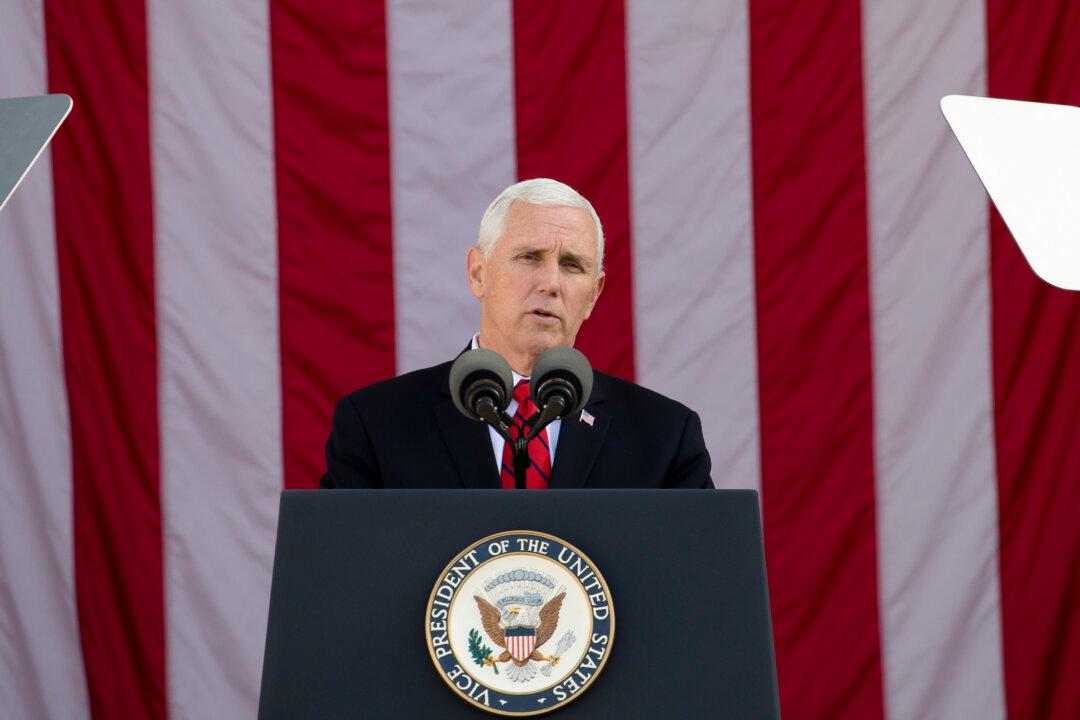WASHINGTON—Some 4,300 Veterans Affairs (VA) workers have been demoted, fired, or suspended since President Donald Trump took office, Vice President Mike Pence told a room of veterans caregivers on Nov. 26.
Pence said that proves the president has “taken decisive action to restore accountability to the VA,” a statement that drew loud applause and cheers from the audience.






